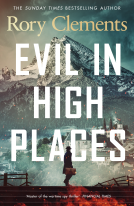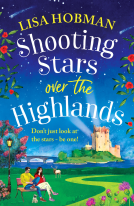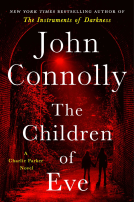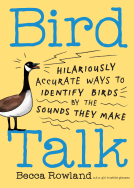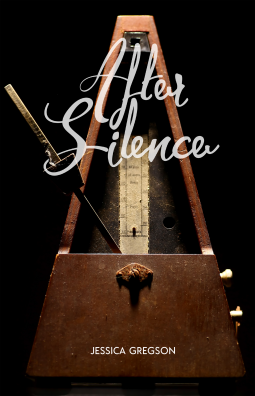
After Silence
by Jessica Gregson
This title was previously available on NetGalley and is now archived.
Send NetGalley books directly to your Kindle or Kindle app
1
To read on a Kindle or Kindle app, please add kindle@netgalley.com as an approved email address to receive files in your Amazon account. Click here for step-by-step instructions.
2
Also find your Kindle email address within your Amazon account, and enter it here.
Pub Date Aug 09 2022 | Archive Date Nov 01 2022
Description
After Silence will be published on 9 August 2022, to coincide with the 80th anniversary of the first performance of Shostakovich’s Symphony No. 7 in Leningrad in August 1942.
Leningrad, 1941. German forces surround the city at the start of the most harrowing winter in its history. The siege becomes a battle for survival. Bodies fill the streets, and the crushing horror of cold, starvation and bone-deep fear is relentless.
Set against this background of tragedy and suffering, a remarkable group of musicians — soldiers and civilians, all of whom have been wasted by war and hunger — come together to perform Shostakovich's Seventh Symphony. They scarcely have the strength to carry their instruments, but their performance of this haunting and defiant new piece provides a rare light of hope in the darkness. Friendship, love and a vibrant passion for music combine in this ambitious, absorbing and richly sensuous masterpiece.
Available Editions
| ISBN | 9781838498764 |
| PRICE | |
Featured Reviews
One of my favorite genres is historical fiction, and one of my favorite composers is Dmitri Shostakovich, with his 7th Symphony being one of my favored pieces. That all gets combined into the wonderful novel After Silence, which tells the story of Leningrad during the siege in WW2, and of the various fictional characters who will eventually play the symphony in Leningrad as a measure of celebration of the city, and as an act of defiance to the Germans.
The horror of the siege - starvation, death, aerial bombardments - is brought home extraordinarily by the author. Her descritions at times are so vivid that I felt as if I were living through the terror. Yet the characters are resilient in their own way. We meet them not only during the siege, but also learn their background stories. My favorite was Dima, the young blind violinist who is a genius with his instrument. The end of the book is the performance of the 7th, and the beauty of the narrative is a pleasure to read.
My only quibble is that the book is a little too long. I felt that some sections could have been tightened up, but this didn’t detract from my enjoyment of After Silence.
My thanks to Deixis Press and to Netgalley for providing an ARC of After Silence.
 Kate N, Reviewer
Kate N, Reviewer
------
After Silence
------
This is an immersive and moving story set around the Siege of Leningrad during the second World War. Despite the harrowing circumstances it never wallows in depression. The characters have all suffered loss and starvation and their endurance and commitment to survival is frequently heartbreaking yet uplifting. Brought together by music that adds wonderful dimension to the story the diverse origins of each character are revealed in flashbacks. It is a very human story of mixed emotions and the four main characters, Lidiya, Katya, Dima and Trofim became very real and convincing. The atmosphere of the city under siege is vividly tense and dramatic yet the story is more about the people who inhabit the city, the detail of how they copy with scant rations and cold, the relationships between them, the ability to form alliances and even fall in love. There is some very emotive imagery, particularly the struggle that the musicians have just in lifting their instruments let alone the task of playing Shostakovich's Leningrad symphony which is the intended culmination of their efforts. I loved the story although at times it made me sad. Beautifully written it is very readable and worth taking time over.
Thank you to Deixis Press and Netgalley for an ARC.
 Valerie B, Reviewer
Valerie B, Reviewer
Thanks to Netgalley and the publisher for an ARC of this book. I have chosen to write this honest review voluntarily and it reflects my personal opinion.
This book is set in a few months over 1941 /2 but we are also taken back in time with the personal stories of the musicians and their friends and families to understand what has brought them to this point. The physical details of the terrible winter of deprivation are conveyed so clearly, even down to the inability of the musicians to play for many minutes because of their starvation ( I was surprised to read they were given extra rations to facilitate playing the concert). The descriptions of how the musicians felt when playing convey how the music transported them to a different state, almost a 'high', I thought the passages were written exquisitely. Each character has a unique and interesting story which were explored and developed so that it was easy to understand their reactions and behaviours, they were completely credible.
It is almost impossible to describe how good this book is, it is so well-written and unique. I urge you to read it for a fascinating picture of history and humanity, it is brilliant! I have signed up to follow this author on Amazon and Bookbub after reading this superb novel.
This is an intimate exploration of a few characters affected during the siege of Leningrad by German forces at the start of WWII. This book focuses in great detail on the depth of the characters themselves--their history and experiences--and tells the story through their perspective, rather than focusing on the events and how the characters reacted and dealt with their external circumstances. It is an extremely compelling and well written novel that fantastically portrays love, loss, survival, and how much music can be a saving grace.
After Silence is centered largely around the siege of Leningrad and the characters who persevere and endure despite incredible hardship and loss. These characters, who are members of an orchestra will go on to perform Shostakovich’s Symphony No. 7 for the first time, despite some being so malnourished that they struggle to lift their instruments. The author does a great job of creating dimensional characters with moving backstories that are woven in to the story in a way that enhances our understanding, but does not distract. I also feel that the setting of a city during siege was described so vividly that we truly gain an understanding of the terrible conditions in which these characters survived. Most impressively, while it is true that we learned of the hardship and terrible conditions that these characters faced, the author also managed to show the strength, hope, and resilience that was instilled in these characters.
After Silence is set predominantly during the siege of Leningrad by German forces in 1941/2. The book tells the tale of some of the (fictional) musicians who played in the first remarkable Leningrad performance of Shostakovich’s mighty seventh symphony in the August of 1942.
This book wasn’t quite what I expected. For a novel seemingly centred around classical music, I found the musical elements of the book the least convincing part of it. We spend surprisingly little time with the characters during rehearsals or the final concert and I didn’t feel like I got to know the symphony itself through this book. Reading the novel as a musician and brass player, I noticed a few minor inaccuracies and moments which didn’t quite ring true to me. None of this is necessarily a criticism, more a heads-up on what to expect.
As an historical novel, I found After Silence to be an incredibly visceral read which powerfully conveys the horrors of the siege of Leningrad. Many of the musicians who played in that performance were so malnourished through starvation that they struggled to lift their instruments. Meantime friends and family died around them. The author avoids the trap that so much historical fiction falls into – there are no “info dumps” to be found within these pages. Want the historical context for the events described in this book? Go research them elsewhere. Here, we follow the experiences of the characters themselves and see events from their eyes alone. It’s a refreshing approach.
A powerful read for those interested in history. Recommended.
Thank you to NetGalley and Deixis Press for an ARC in exchange for an honest review.
 Kathryn M, Reviewer
Kathryn M, Reviewer
This wonderful and evocative story will bring the story of Shostakovich deservedly to a wider audience. The language of the descriptions is vivid and emotive in keeping with the music which provides the backdrop. There is an inherent sadness, as is to be expected, but the transformative power of music ensures it is a very satisfying and well-rounded story.
The female characters are well drawn, and as with more and more novels of late, it is refreshing to read novels with strong female leads. It is a very long book but cannot readily see how it could be shorter, perfect read for long winter evenings
The story of Shostakovich's 7th symphony and its importance in Russian history is not explored enough in Western literature. However, this is now being somewhat rectified.
Thank you to Deixis Press and NetGalley for the ARC
 Reviewer 976152
Reviewer 976152
After Silence is a phenomenal story about hope and healing in absolutely dire circumstances, and about music bringing people together.
This is a story about human connection, about finding family in dire circumstances with people you wouldn't necessarily choose. Katya is struggling with the death of her children in the Lychkovo massacre. Trofim never quite fit in Army life, and now is on the front lines of the siege. Dima, like everyone else, is just trying trying to survive in a city with no food, that's being bombed, in winter. Six months into the siege, they all listen to the premiere of Shostakovich's Seventh Symphony, which he dedicated to his home city of Leningrad. A few weeks later, they all join the orchestra that will be performing the Leningrad premiere in August.
This book is beautifully written; it reminds me of listening to Hilary Hahn play Bach – it feels effortless, so that all you notice is the story because there's never a wrong note, an extra word. I've played the violin for years, and everything about the music in the book (like why Katya would be sought out for chamber music, and why Dima longs to join an orchestra) felt like it came from someone with a musical background. I also appreciated how Dima's blindness was handled; it was refreshing to have disability portrayed as a different set of experiences, not something that makes a person a burden. Everyone felt so real I wanted to look up what they did after the war; since I can't, I choose to believe the main characters were all able to participate in the reunion concerts.
Thank you to Deixis Press and NetGalley for the opportunity to read this early in exchange for a honest review.
 Reviewer 5648
Reviewer 5648
I almost didn't read this book but boy am I glad that I did ! After Silence is a dark book, as is much of the world right now. The story opens in Leningrad when the city has been blockaded by the Germans and everything and most of the people left in the city are dead or dying. The opening reminded me too much of what is happening in Ukraine, although the author had no way of knowing that this would be the world when her book was ready to be published. I had to put it down to sort out my feelings and be sure that I could read this book objectively. I decided that I could, so I restarted reading the book and ,as I have said, I am so glad that I did.
What I realized is that this is a testament to the human need to connect with people and to share live and feelings no matter the situation. The two main women in this story have had their lives torn apart by war and death. One Katya has no desire to live the other, Lidya is Katya's polar opposite. The war, and the blockade have intertwined their lives in ways that will change them forever. One feels she is betraying someone and the other has been betrayed. The descriptions of their lives and loss are at once beautiful and wretched.
The story shifts to a school for children where we meet the next main character Dimma, a blind child. His story comes from early, before the blockade and is a remarkable testament to the human spirit. I think that he is my favorite character, but everyone will have their own favorite in this saga.
The third shift in character takes you to the Russian front where you meet Trofim and Sasha. These two make the life of the soldiers fighting for Russia very real and very tragic. They are both hiding secrets. The author does a really good job of creating the sense of real people caught in a story that they did not choose. The book's narrative is told from the points of view of all three of these stories. They all come together and complete each other.
The author answers the question what comes after silence by telling you that is is music. The music is not always what we think of as music. There is music in the living of your life. There is music is shouting at god. There is music all around us. The author ties all of this together against a backdrop of, what we think of, as real music, a symphony. One of music and one of life.
This is a beautifully written story and is well worth reading, thinking about, and discussing with a friend or a book club. It is a story of the human spirit and how it overcomes tragedy and becomes fuller because of it. I hope that everyone who reads this book enjoys it as much as I did.
